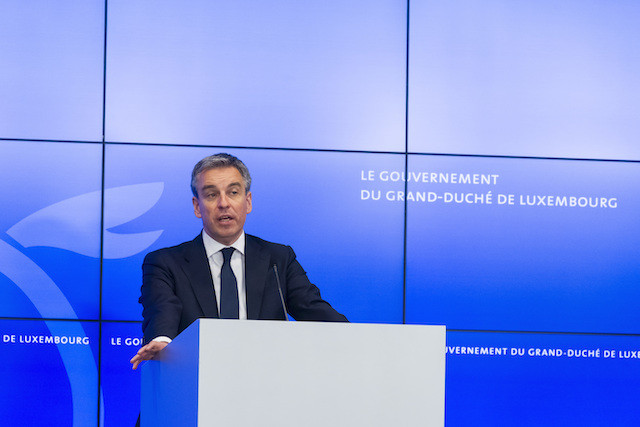Education minister Claude Meisch (DP) said a 20-page document of guidelines had been drawn up after in-depth consultation with specialists regarding the safety considerations of reopening primary schools for all learners.
Here are the key points.
Public primary schools
Primary school classes, including Cycle 1 will be split into cohorts A and B, and will alternate attendance to limit contact. The size of these groups will be limited and the children within them remain the same. An optional free after-school facility will be offered in the afternoon. For group A, this will be at the school, for group B, it will be in another building. There is the option for parents of children in B groups to leave their children from 8am to 1pm in these facilities.
Activities will take place outside as much as possible, in the playground or other natural environments. Meals will be taken inside the learning space, not in a canteen. Surfaces and toys will be regularly cleaned and disinfected.
Teaching staff must respect a two metre distance with each other. Where this is not possible, they will wear a face covering. They will not wear masks when working with children. Hand-washing and regular cleaning measures will continue.
Masks
It is not recommended for children under six to wear masks. According to the ministry, this can in fact increase the risk of a child touching their face or mask and spreading the virus.
Morning drop-off
A supervision of children in primary years 1-4 will be available from 7am to 8am. For group A pupils, this will be at the school, and group B it will be in the reception building.
Crèche and mini-crèche arrangements
Within public crèches, classes will be limited to five children, who will be taught by the same teacher. Activities will be held outside as much as possible. Toys and equipment will be regularly cleaned and disinfected. Meals will be consumed in the main activity space or classroom.
Crèche staff must respect a two-metre distance with each other. Where this is not possible, they will wear a face covering. They will not wear masks when working with children. Hand-washing and regular cleaning measures will continue.
Staff will continue to have physical contact with babies. This is permitted with older children, for instance to help them dress or console them.
Children will be taught and reminded to wash their hands regularly. It is strictly forbidden for children aged under two to wear masks because of the risk of suffocation.
It is not recommended that children under 6 wear face coverings. According to the ministry, this can in fact increase the risk of a child touching their face or mask and spreading the virus.
Crèche registration
To send a child to a public crèche after 25 May, parents must re-enroll their child. This new contract will run until 15 July 2020, the end of the school year.
Special education centres
All specialist teaching or skill centres will also resume activities from 25 May. Some already reopened on 10 April. Specialised support for secondary schools resumed on 11 May and the equivalent for primary will restart on 25 May. These centres will no longer offer workshops during the current school year. However, they will provide diagnostic and counselling services. Because of the already small class sizes, the education ministry has not requested that these groups be reduced in size.
The same rules apply for staff and pupils as mentioned above. These centres will provide on-site catering, through a lunch bag of other adapted to the needs of the learner. Adapted transport between a learner’s home and these centres will be offered and will run several journeys to allow social distancing.
Exentions of leave for family reasons
Special leave for family reasons was granted to parents of children aged 4 and over who had no childcare alternatives during the lockdown. This will cease to be available from 25 May, except in the following instances:
- a vulnerable child;
- a child who cannot be placed in care due to lack of capacity. A certificate attesting to the inability of the facility to take in the child will be drawn up by the education and must be attached to the application to be submitted to the National Health Fund;
- a child over 13 years of age, who is receiving the supplementary allowance for a child living with a disability from the Caisse pour l'avenir des enfants.
- For children under 4 years of age, parents have the choice of either taking leave for family reasons or enrolling them in a childcare facility. Further details on the application procedure can be found here.
